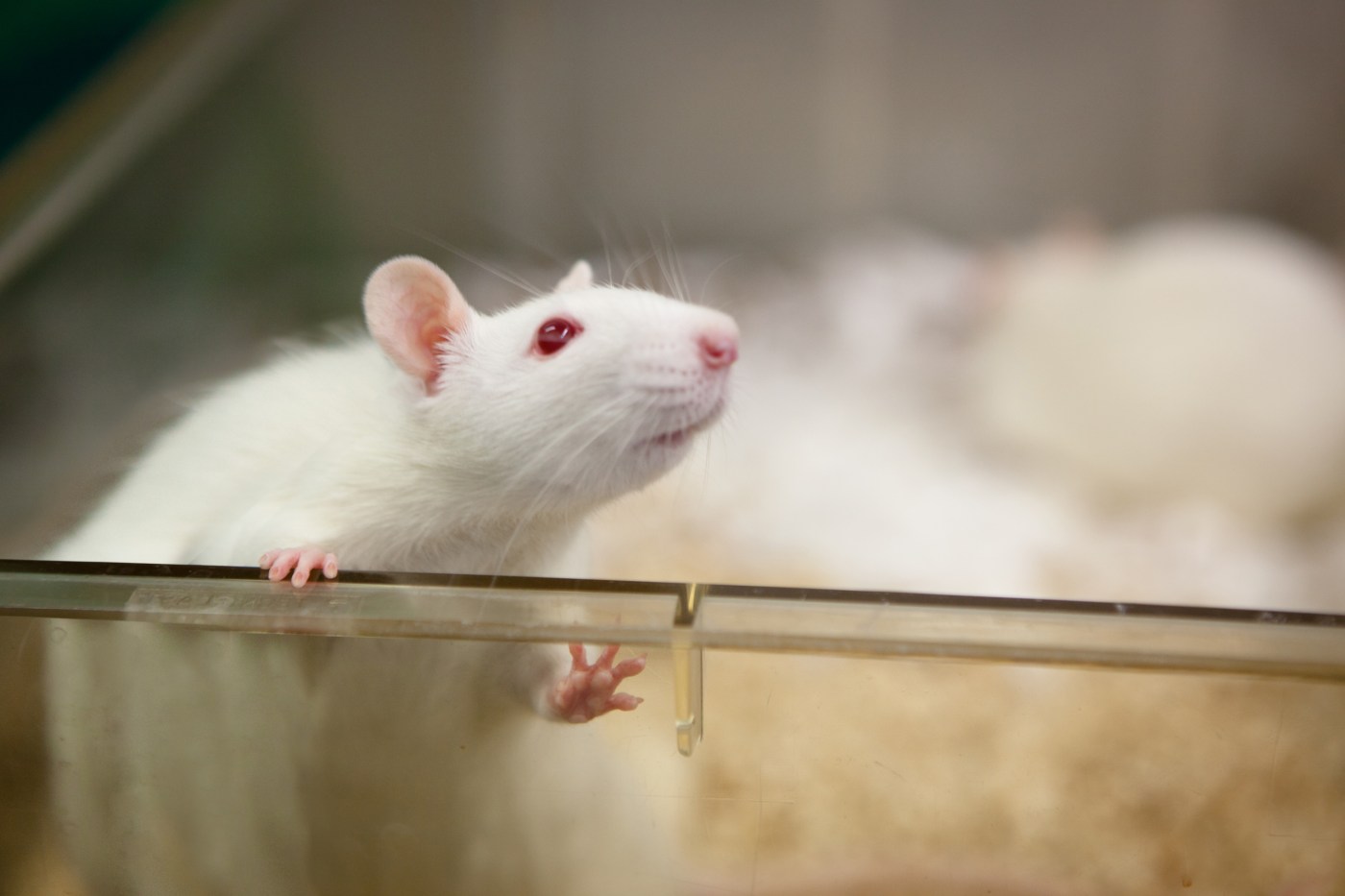A potent, long-lasting “cousin” of a naturally occurring hormone reduced food intake and body weight in a rat model of obesity, according to results published in September 2021 in the journal “Frontiers in Physiology.”
The researchers say the results “mark a new avenue in anti-obesity drug interventions” and could potentially lead to a safe, effective treatment for the problem, which affects some 4 in 10 Americans.
Dr. James E. Blevins of the VA Puget Sound Health Care System completed the study with colleagues from Seattle Children’s Research Institute; the University of Washington; Harvard Medical School; and OXT Therapeutics, Inc.
The research focused on ASK1476, a human-made peptide with a structure similar to that of oxytocin.
Oxytocin known as ‘love hormone’
Oxytocin is a protein-based hormone made by the brain. Studies have linked it with a wide variety of body functions and behaviors, including feeding, respiration, immune regulation, social memory, learning, digestion, pain perception, maternal behavior and aggression. Because of its role in childbirth, maternal bonding, and romantic and sexual attraction, it is often called the “love hormone.”
Previous research suggests that administering oxytocin reduces food intake and prevents or reduces weight gain in animal models, as well as humans. However, oxytocin is quickly broken down in the body and cannot be taken by mouth. That’s why studies use injections or nasal administration.
Researchers created ASK1476 as a longer-lasting analogue of oxytocin. Blevins and colleagues have tested it for safety, effectiveness and potential side effects.
“It’s been exciting and fortunate to work with this group to address some of the limitations of oxytocin in terms of the short half-life,” said Blevins, who also is in the Division of Metabolism, Endocrinology and Nutrition at the University of Washington School of Medicine, Seattle. “There has been one study… that found intranasal oxytocin to elicit weight loss in men and women with obesity, but it required four daily intranasal administrations over eight weeks, and the weight loss was fairly modest. If we can find highly selective analogues that last longer and can be taken less frequently without causing any adverse effects, we’d be much better off.”
Determining the right dose
Before experiments started, rats were fed a high-fat diet (60% fat, 20% protein, 20% carbohydrate) for 15 weeks to induce weight gain. Then the group conducted preliminary experiments to determine the right doses for the study, followed by a 28-day intervention.
In the dose escalation phase, they gave the animals increasing doses of either oxytocin or ASK1476. Each dose was given for three days, followed by a two- to five-day washout period before the next higher dose began. The researchers saw reductions in food intake and loss of body weight at very low doses of both drugs. The human-made peptide was more potent, with an effective dose only one-fourth that of oxytocin. Neither drug affected water intake and neither appeared to cause nausea. These can be common effects of existing weight-loss drugs.
“ASK1476 had some very strong effects,” said lead author Dr. Christian Roth, with the Seattle Children’s Research Institute. “We had no concerns with fluid regulation, but we did have a few animals [receiving ASK1476] that died. We don’t yet know the reason, but we think it is linked to that specific molecule, so we are considering testing other peptides.”
More Information
Click here to read the full story.
Click here to learn more about VA research.
Topics in this story
More Stories
Watch the Under Secretary for Health and a panel of experts discuss VA Health Connect tele-emergency care.
The 2024 National Veteran Suicide Prevention Annual Report provides the foundation for VA’s suicide prevention programs and initiatives.
Theranostics is a specialized field of nuclear medicine that uses a two-pronged approach to diagnose and treat cancer.






